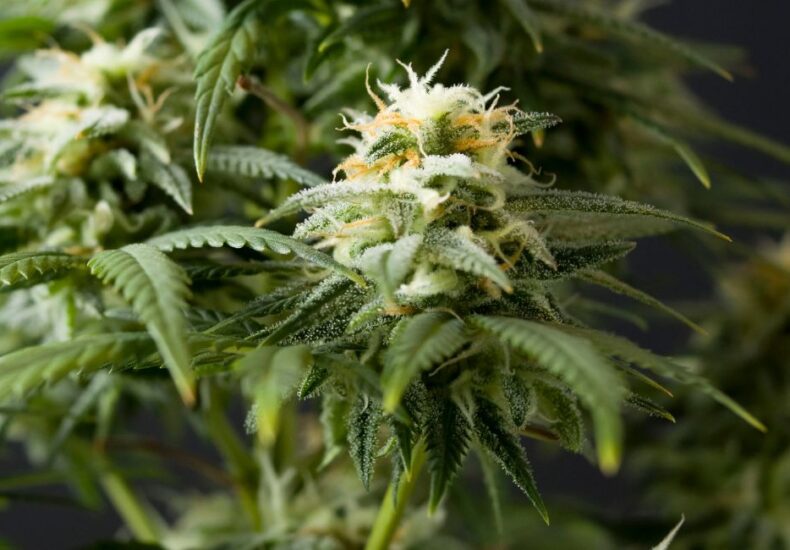
Unlocking Insights with THCa Flower Research
Unlocking Insights with THCa Flower Research
The exploration of THCa flower research has opened new avenues in understanding the potential benefits and applications of cannabis. As the non-psychoactive precursor to THC, THCa offers unique properties that are garnering attention from researchers and consumers alike. This article delves into the intricacies of THCa, its potential benefits, and the ongoing research that is shaping its future.
Understanding THCa: The Basics
THCa, or tetrahydrocannabinolic acid, is a cannabinoid found in raw cannabis plants. Unlike THC, THCa does not produce psychoactive effects. This distinction makes it an attractive subject for research, particularly in the fields of medicine and wellness.
- THCa is abundant in fresh cannabis plants.
- It converts to THC through a process called decarboxylation, which occurs when cannabis is heated.
- THCa is believed to have anti-inflammatory, neuroprotective, and anti-emetic properties.
The Potential Benefits of THCa
Research into THCa is still in its early stages, but preliminary findings suggest several potential benefits. These benefits are drawing interest from both the medical community and consumers seeking alternative wellness solutions.
Anti-Inflammatory Properties
One of the most promising areas of THCa research is its potential as an anti-inflammatory agent. Studies have indicated that THCa may help reduce inflammation, which could be beneficial for conditions such as arthritis and other inflammatory diseases.
Neuroprotective Effects
THCa is also being studied for its neuroprotective properties. Research suggests that it may help protect brain cells from damage, which could have implications for neurodegenerative diseases like Alzheimer’s and Parkinson’s.
Anti-Emetic Potential
THCa’s potential to reduce nausea and vomiting is another area of interest. This could be particularly beneficial for patients undergoing chemotherapy or those with chronic conditions that cause nausea.
Case Studies and Research Findings
Several case studies and research projects have begun to shed light on the potential applications of THCa. These studies are crucial in understanding how THCa can be utilized effectively.
Case Study: THCa and Inflammatory Conditions
A study conducted by researchers at the University of Guelph examined the effects of THCa on inflammation. The study found that THCa significantly reduced inflammation in animal models, suggesting potential therapeutic applications for humans.
Research on Neuroprotection
In a study published in the British Journal of Pharmacology, researchers explored the neuroprotective effects of THCa. The findings indicated that THCa could help protect neurons from oxidative stress, a key factor in neurodegenerative diseases.
Exploring Anti-Emetic Effects
Research published in the European Journal of Pharmacology investigated THCa’s anti-emetic properties. The study found that THCa reduced nausea and vomiting in animal models, highlighting its potential for treating these symptoms in humans.
Challenges and Future Directions
While the potential benefits of THCa are promising, several challenges remain. These challenges must be addressed to fully unlock the potential of THCa flower research.
Regulatory Hurdles
One of the primary challenges is navigating the complex regulatory landscape surrounding cannabis research. Researchers must work within these regulations to conduct studies and bring THCa-based products to market.
Need for Comprehensive Studies
Comprehensive, large-scale studies are needed to fully understand the effects and potential applications of THCa. These studies will help establish dosing guidelines and identify any potential side effects.
Consumer Education
Educating consumers about THCa and its potential benefits is another important step. As awareness grows, consumers will be better equipped to make informed decisions about incorporating THCa into their wellness routines.
Conclusion
THCa flower research is unlocking new insights into the potential benefits of this non-psychoactive cannabinoid. From its anti-inflammatory and neuroprotective properties to its potential as an anti-emetic, THCa offers a range of possibilities for medical and wellness applications. As research continues to evolve, the future of THCa looks promising, with the potential to impact a variety of fields positively.
- From Skepticism to Trust: How Goldco Reviews Transformed My Mind
- DIY Teeth Lightening: How to Attain a Spectacular Smile
- Just how to Maintain Your Bright Smile: Post-Whitening Treatment Essentials
- ** BPC 157 Peptide: A Comprehensive Guide to Its Advantages and Makes use of **.
- ** Opening the Recovery Possible: The Science Behind BPC 157 Peptide **.